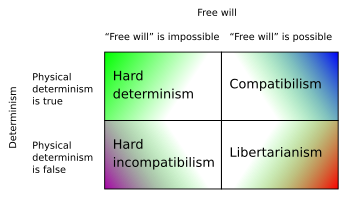GrinningCat said:
Well, of course philosophy is important. I've said that I'm training to be a counselor. This means I've spent a lot of man hours studying psychology - and thus, by extension, philosophy because philosophy basically led to the formation of psychology. I've had to study philosophy much more than your average layman and even much more than your average college graduate, so I know quite a bit about it. The previous response doesn't mean I scoff at philosophy, just that I scoff at the philosophy of determinism. Notice the 'the' in my previous post so as to reference the specific philosophy that we have been discussing. Mind you, I'm referring to hard-line determinism.
Forgive me, I did miss the 'the'.
My point does stand about the nature of reality not being determined by our desires though. Also, even if I knew determinism were a property of the universe, I still wouldn't act like it was in my day-to-day life.
But, "hard-line determinism" (I tend to refer to it as classical determinism because of the link with classical physics) did kind of die with the maturing of quantum mechanics, when it became obvious that there were no 'hidden variables' and there are truly random processes.
Although this doesn't rule out 'probabilistic determinism' (which is basically that the Schrodinger equation is deterministic in time, so you can always give the likelihood of an event occurring which does have predictive power), although on the human scale we're more likely to see it behaving closer to classical determinism, due to decoherence.

